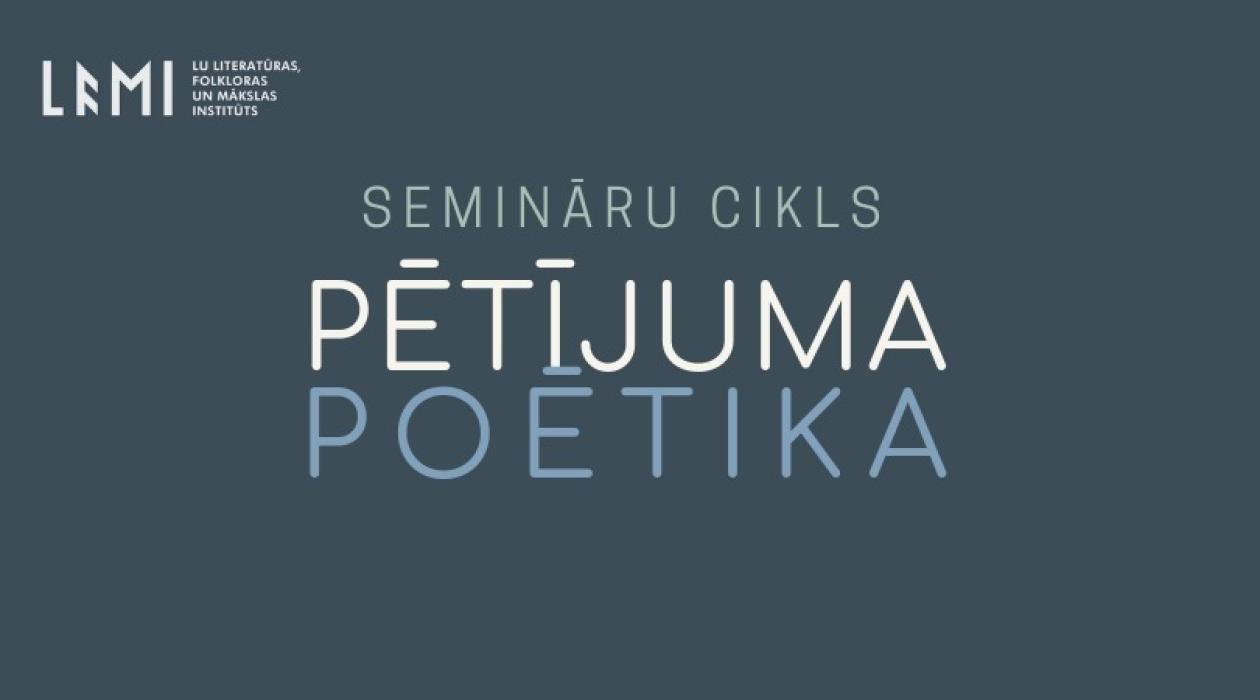The Poetics of Research – 22 January

In connection with the academic selection process at the Institute of Literature, Folklore and Art of the University of Latvia (ILFA), we invite you to a “Poetics of Research” seminar on 22 January at the Archives of Latvian Folklore Reading Room (ILFA).
At 13:00, Una Smilgaine will give a talk:
“‘We beat and kill little hedgehogs’: Representations of Violence in Latvian Lullaby Rhymes”
At 14:00, Mārtiņš Boiko will present:
“Herder’s Encounter with Folk Song (and Singing Practices) During His Time in Riga (1764–1769): A New Perspective”
Abstracts
Una Smilgaine
“‘We beat and kill little hedgehogs’: Representations of Violence in Latvian Lullaby Rhymes”
The Archives of Latvian Folklore holds the largest collection of Latvian lullaby rhymes (ucināmās dziesmas), much of which was published in the Latvju dainas (Vol. 1, 1894) and Latviešu tautasdziesmas (Vol. 6, 1993). Additional materials remain unpublished.
Lullaby rhymes are short, rhythmic texts sung or recited to children, usually accompanied by physical interaction: playing with the child’s fingers, hands, feet; tickling and stroking; rocking the child on knees or legs. Movement and text are inseparably linked in this folklore genre. The rhymes can be grouped by type of movement, such as riding, finger-play, foot-play, or gentle touch.
Motifs within these rhymes have changed over time, reflecting shifting views on what is appropriate for children. One widely known example from the 1920s–1930s:
We beat and kill little hedgehogs,
Throw them in a pot and boil them:
Meat for father, bones for mother,
Soup in a bowl for the children.
(LFK Bdz 3560, 6)
Unlike other lullaby rhymes still present in oral tradition, this type has largely disappeared, revealing changing cultural norms around childhood and acceptable content.
The lecture will explore themes of emotional and physical violence within these texts, including references to punishment, death, crime, sexuality, and inappropriate adult behavior—all presented in a form once deemed suitable for children.
Mārtiņš Boiko
“Herder’s Encounter with Folk Song (and Singing Practices) During His Time in Riga (1764–1769): A New Perspective”
This presentation focuses on Johann Gottfried Herder’s experience with folk song during his four-and-a-half-year stay in Riga. The emphasis is on Herder’s direct encounters with singing practices, rather than his reading of song texts.
The study aims to clarify what can and cannot be known about Herder’s exposure to folk performance, to distinguish between fact and speculation, and to re-evaluate earlier theories—especially those of Kurt Stafenhagen and Walter Ciesemer. It also proposes new insights.
To contextualize previous assumptions, the opening segment outlines the Baltic reception of Herder. The study uses an interdisciplinary approach, combining the history of ideas, reception studies, soundscape analysis, demographic history of Riga, and more. Though the research is ongoing, key conclusions and the overall structure are already in place.